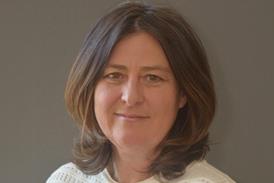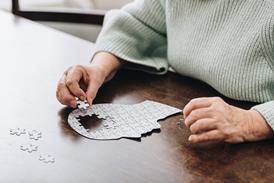In rural and remote areas, partnership working is essential to provide people with high quality end of life care, writes Diana Hekerem
This article was part of the End of Life Care channel, in association with Marie Curie Cancer Care. The channel is no longer being updated.
For people who are terminally ill and their families, there are often multiple barriers to getting the care and support they need. Local variation in services plays a huge role in the levels of care provision and support available.
Rural and remote communities are very aware of the difference between their access to care and support services at the end of life and the services on offer to people in more heavily populated areas. In part this is down to the fact that models of care delivery tend to be developed in response to the needs of suburban or urban populations and rely heavily on infrastructure that simply isn’t present in remote and rural areas.
- Video: Peter Nightingale on the importance of partnership working
- More from Marie Curie’s end of life care channel
Through Marie Curie Cancer Care’s work in Scotland, particularly in Argyll and Bute, Dumfries and Galloway, the Highlands, and Aberdeenshire, we recognised that one size does not fit all when delivering care and support. Rural Scotland accounts for 94 per cent of the country’s land mass but only 7 per cent of its annual deaths. Terminally ill people experience barriers to care that include a lack of appropriate transport, physical and social isolation, a limited out of hours services, and limited staff resources and specialist services.
Holding it together
This means that remote and rural areas drive some of the most innovative approaches to delivering services. A collaborative, strategic approach to commissioning, with provider organisations an integral part of service design, is the underpinning way of working for these areas.
Those working with patients at end of life in the area strive to work together so terminally ill people and their families don’t miss out on the care and support that they need simply because of where they live.
‘There is a lot to learn from how rural communities approach many now-mainstream commissioning strategies’
We are approaching this challenge through partnership working in service delivery and design, and through raising awareness of the issues with service providers and policy makers. For example, we have a “optimal use of rural resource” workforce model which means community nurses can use their transferable skills and passion for palliative care combined with training, skills and support provided within their Marie Curie role to create a flexible 24/7 palliative care service. This enables high quality end of life care to be delivered even in the smallest island populations and remote areas including Orkney and Western Isles.
We have also brought together a range of organisations from hospices, community groups and care homes alongside the statutory services to develop new collaborations and ways of working, such as the care home project and health promoting palliative care.
There is a lot to learn from how rural communities approach many now-mainstream commissioning strategies, such as community engagement, capacity building, co-production and community reliance. However, we cannot overlook the need for resourcing and access to more specialist support or the role of the community that holds the care pathway together.
Diana Hekerem is divisional business and service development manager for Scotland at Marie Curie Cancer Care. Find out how Marie Curie works with commissioners.



























No comments yet